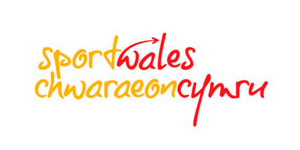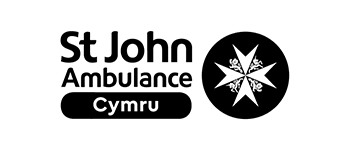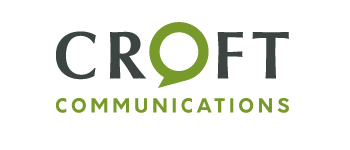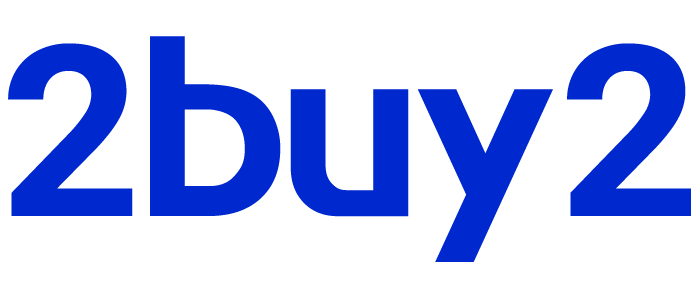Safeguarding Children’s Rights – A Seminar by the Children’s Commissioner for Wales
United Nations Convention on the Rights of the Child Training – Children’s Commissioner for Wales
Following discussions with the Welsh Sports Association about the impact of the Covid-19 pandemic on sport for children, the Children’s’ Commissioner for Wales, Professor Sally Holland, offered to personally run a seminar for sport on the UN’s Convention for the Rights of the Child and the duty of the sports sector to the Convention. You can watch the full recording of our Children’s Rights Training Event, hosted by the Children’s Commissioner for Wales, by following these links: Part 1, Part 2, and Part 3.
The sports sector has a fundamental role to play in understanding and promoting respect for the rights of the child. We agree that it should not be the case for the success of any child to be determined by their social or economic circumstances; such as access to after school clubs, transport to their local swimming pool or sports hall, learning to ride a bike or outdoor education. The Covid-19 pandemic has compounded the existing inequalities amongst children and young people and access to sport. The Children’s Rights Commissioner’s Coronavirus and Me Survey reported that not being able to spend time with friends and access to sport and physical activity throughout the Covid-19 pandemic has had a detrimental and disproportionate impact on the confidence and wellbeing of young people, particularly those living in areas of deprivation.
We are thrilled that the Children’s Commissioner for Wales, in collaboration with the Welsh Sports Association and the wider sports community, recognises the value of sport to substantially enhance the work her wellbeing programmes. The sports sector has a responsibility to act as a catalyst, to work together to put safeguarding and the rights of the child at the forefront of our planning and policies, as well as make a targeted commitment to overcoming the barriers that prevent all children and young people from taking part in sport and physical activity.
What is the United Nations Convention on the Rights of the Child (UNCRC)?
The United Nations Convention on the Rights of the Child (UNCRC) is a list of rights that all children and young people aged 18 and under, everywhere in the world have. It is the most complete statement of children’s rights ever produced and is the most widely ratified international human rights treaty in history.
All UN member states apart from the United States have ratified the Convention, and it is important to remember that just because a country has ratified the UNCRC does not guarantee that the rights in it shall be respected, protected and fulfilled. The Convention came into force in the UK in 1992, and in 2011, Wales became the first country in the UK to make the UNCRC part of its domestic law.
Children and young people have 42 rights that cover all aspects of a child’s life and set out the civil, political, economic, social and cultural rights that all children everywhere are entitled to. Every child has rights, whatever their ethnicity, gender, religion, language, abilities or any other status.
All rights are linked, and no right is more important than another.
You can find a poster with all the UNCRC Rights of the Child in English here, and in Welsh here. You can also access a guide to UNCRC Articles in British Sign Language here.
Below are some of the Articles that our participants, who are responsible for children in sport, recognised as being some of the most important to them:
Article 3: Adults should always do what is best for you
Article 12: Article 12: You have the right to be listened to and taken seriously.
Article 15: You have the right to meet with friends and join groups
Article 19: You have the right to be protected from being hurt or badly treated
Article 29: You have the right to be the best you can be. Education must help you develop your skills and talents to the full.
Article 31: You have the right to relax and play – My Magic Sports Kit
Article 37: You have the right not to be punished in a cruel or hurtful way.
It is important to remember that individuals and groups of young people might hold a different opinion as to what rights are most valuable to them, contrary to the rights that adults perceive to be in the best interest of the child.
Engage with the young people in your organisation to ensure that, first and foremost, they understand all rights that they are entitled too. It is essential that adults working with children support them to know their rights in a meaningful way and empower young people to recognise and speak up when their rights are not being fulfilled.
What is The Right Way? The Five Principles of Children’s Rights in Wales by the Children’s Commissioner
Embedding the UNCRC
Making an effort to put Children’s Rights (UNCRC) at the core of planning and the delivery of services for children and young people within sport.
- Listen to different groups of children that are relevant to your organisation, what rights would they most like to be highlighted as important to them.
- Public facing children’s charters/promises setting out a vision and aims for individuals and organisations to examine, review and improve provision for children and young people’s rights.
- Talk about children’s rights across structures and policies, training and language. Make sure that leaders, staff and volunteers have a good knowledge and understanding of the meaning of children’s rights.
- Recognise what is important to the child and not just the parent.
- Children’s rights are not conditional e.g. Article 31 the right to relax and play cannot be taken away as a result of bad behaviour.
- Promoting and protecting children’s rights. Delivering sport to areas of deprivation because it is the right of every child and not the result of focus on social and economic circumstances.
Equality and non-discrimination
Ensure that every child has an equal opportunity to be the best they can be, and that no child has to ensure poor life chances due to discrimination.
- Some groups face more barriers/discrimination/abuse
- Think about children as a whole group; do you regularly ask adults their views and not children, do you provide adults with information and not think about distributing information in a child friendly format, can you review any discriminatory rules based on age?
- The Coronavirus and Me Survey highlighted how the pandemic had a disproportionate impact on Black, Asian and Minority Ethnic groups and Disabled Children’s access to outdoor play, sport, and confidence. The pandemic had a huge effect on the rights of young people to play and to meet with friends for example. Think about making open commitments to encourage children of all backgrounds to engage in sport and your organisations.
- Stereotyping in sport – think about greater opportunities for boys and girls being channelled into traditionally gendered physical activities.
- Space for practitioners – casual discriminatory language e.g. assuming the sexuality of young people ‘fancying the opposite sex’, or gendered language such as ‘boys, help the girls out’.
- Language – Article 30 and the right to speak your own language means we have a responsibility to ensure children are not affected by language barriers e.g. Sign Language and languages other than English and Welsh. Something that is becoming increasingly important as we hope to welcome greater numbers of refugees into Welsh communities.
Children’s Rights Impact Assessment (CRIA)
Organisations can use CRIA to evidence how they have had regard to children’s rights in their decision-making. It can be a useful tool to prompt decision makers to stop and think about the implications of their plans and how to ensure they have the most positive impact possible on children and young people.
Empowering children
Giving children the knowledge and confidence to use their rights and hold organisations and individuals that affect their lives to account.
- Ensuring children know their rights and that they have good experiences when using their rights.
- Provide good experiences to children, demonstrate that they are being listened to and taken seriously, show them that we really value their opinion.
- Work with children and young people on posters and charters, to decide as an organisation what articles you want to work on and improve collectively.
- Involve children and young people by giving them the opportunities/training/ information they need to influence decisions that impact them
- Start on smaller matters – the colour of sports kit or organising a fun day, so that when it comes to bigger issues young people have the skills, good experiences and confidence to participate in a meaningful way.
- Help children to set their own goals, build relationships with groups of young people to allow them to regularly give ideas and feedback. e.g. youth groups/forums.
- Children need to know they have the right to be safe – otherwise then they may not recognise or have the confidence to speak up when there is something wrong.
- Knowing their rights will help children recognise when their rights are not being met, and through good experiences communicating with adults and wit the correct safeguarding mechanisms in place, they will be in a better position to raise any thoughts and concerns about their welfare.
Participation
Listening to children and taking their views seriously (as guaranteed by Article 12 of the UNCRC).
In sport when we talk about participation, we immediately think about equality non-discrimination breaking down barriers to ensure children from all backgrounds have access to sport. But it is also important for us to consider participation in a sense of listening to young people and encouraging them to play an active role in making the decisions that affect them.
You can find a guide for professionals on good practice for encouraging participation amongst young people here. You can also find the children and young people’s national participation standards here.
- Listen to different groups of children from diverse areas and help them to realise what rights they want to focus on.
- Establishing a Young people’s Board e.g. to engage young people in organising discussions and gathering information, surveys that highlight what is important to the young people in your organisation and working with them on how you aim to put those findings into practice.
- Allow children to play a meaningful role in the organisation, value what they have to say and recognise that ‘be seen, not heard’, is not always the right way.
Accountability
Organisations and individuals should be accountable to children for the decisions and actions which affect their lives.
- Publish an accessible annual update showing how you have worked towards making children’s rights a reality.
- Feedback regularly to children in a suitable format. Use child friendly means of communication e.g. a video or blog that summarises your annual report; a poster that demonstrates how you have acted on their feedback
- Provide children with accessible information on how to provide feedback about services, how to make a complaint and hold staff to account, mechanisms to raise issues as part of a participation strategy.
- Be accountable to the young people we serve.
- When we ask children for their views, it is important to explain how you acted on that information. If a decision is not in their interest or against statutory guidance, then accountability and honesty come into force, and encourage them to work together with you to think proactively about effective solutions.
In Summary
Some key points of interest that our participants can take away from our session. Firstly, to ensure as a priority that we commit to helping children and young people to ‘Know Your Rights’ and embedding children’s voices into our structures and practices. A report commissioned by the Welsh Sports Association found that levels of sport engagement and empowerment can be heightened by improved representation of young people in the design and delivery of sporting activities. Discussions about how to achieve this centred around the importance of making it common practice to use the Articles of the UNCRC in our conversations, our planning and policies to protect all children. Thinking about the way we communicate with young people, using more child-centric means of distributing information such as podcasts, posters and particularly social media, as well as thinking about how accessible that information is to non-English speakers and the deaf community.
A further area that our group demonstrated a real passion and willingness to discuss was around implementing robust polices, practices and procedures around safe recruitment and children’s rights protection. For example, ensuring that young, elite athletes do not have their education disrupted; thinking about safeguarding and protection of children’s rights before selection to compete at international tournaments rather than as an afterthought; and ensuring that adults and parents act in the best interest of the young people they are responsible for – living up to the expectations of the child and not the parent.
In light of the response to our seminar and the overwhelming willingness of our leaders in sport to involve and empower young people to play a meaningful role in their organisations, there was a general consensus that colleagues in the sports sector should come together to develop a sector-wide children’s charter for sport. A children’s charter will outline what organisations and clubs should be doing to safeguard children under their care, putting the UNCRC on children’s rights, safeguarding, recruitment and health and safety guidelines at the forefront of our policies and practices and protect the wellbeing of our future generations.
Key Resources from the Children’s Commissioner for Wales:
Key resources from the Children’s Commissioner for Wales can be found here
You can find a full guide to the practical framework for ‘The Right Way’ to a Children’s Rights Approach here. And a summary here
You can find guidance giving young people a voice in sport from the Child Protection in Sport Unit here.
Parents can find a guide on the UN Convention on the Rights of the Child here.
Menu For Change – a resource for leaders and volunteers to put children’s rights at the heart of everything they do can be found here.
You can find our complete bank of Safeguarding Advice Guidance and Resources here.



















